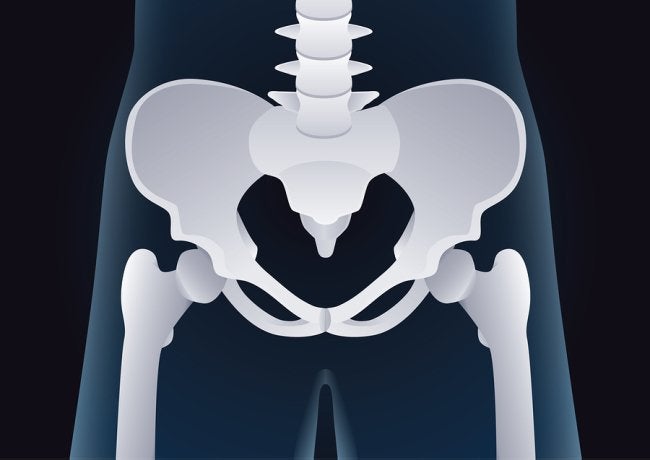-
A Look at Life After Bladder Cancer

Surviving any type of cancer is cause for celebration. But if you’ve survived bladder cancer , you should know that you’re at a high risk for recurrent bladder cancer. Your cancer care team at Urology Associates, P.C., will develop a survivorship care plan that is designed to help you live life well after cancer.
Keep all appointments for follow-up exams.
Your survivorship care plan should include a schedule of follow-up exams you’ll need. Because of the high risk of recurrent cancer, it’s essential not to skip these appointments. At each follow-up visit with your urologist, you’ll likely have a physical exam. You may be asked to have some medical tests, which might include blood tests, imaging exams, and urine tests. Assuming that you still have your bladder, you can expect periodic cystoscopy exams. As time passes and you remain cancer-free, your doctor may begin scheduling follow-up visits with reduced frequency.
Report unusual symptoms you experience to your doctor.
If you experience any signs or symptoms that might indicate a recurrence of cancer or the development of new cancer, contact your doctor right away—don’t wait for your next follow-up appointment. Your urologist will let you know which signs and symptoms to watch out for, such as changes in urination and bloody urine.
Reduce your exposure to toxins.
It’s to be expected that, after surviving bladder cancer, you’d be motivated to make some lifestyle changes to improve your health. There is no foolproof way to prevent recurrent cancer or new cancers, but there are impactful ways you can safeguard your health. If you don’t smoke, don’t start and also try to avoid secondhand smoke. If you do smoke, talk to your doctor about methods of quitting. Other environmental toxins may contribute to an increased risk of cancer. If your job requires exposure to any chemicals, you can ask your doctor if this might place you at an increased risk.
For compassionate bladder cancer treatment in Tennessee, you can put your trust in the caring team at Urology Associates, P.C. Our urology specialists are committed to helping our patients live life well , during and after cancer treatment. Call us today at (888) 329-7700.
-
Get the Answers to Your Questions About Vasectomy Reversal

It’s not uncommon for men who have undergone a vasectomy in the past to decide that they would like to reverse the procedure. In many cases, with the help of a trained urologist, reversals can be successful. If you are considering having a vasectomy reversal, here are the answers to some questions that are likely to be on your mind.
What is the first step in getting a vasectomy reversal?
The first step is to schedule an appointment with a urologist. During this consultation appointment, your physician will ask extensive questions about your medical history, including your fertility history. If you are having the reversal because you want to start a family in the short term, your urologist will also ask questions about your partner’s fertility history. This information allows your urologist to determine the best way to support your goals to achieve pregnancy. Many men find it helpful to bring their partners with them to the initial consultation.
What happens during the procedure?
The exact process your urologist chooses for your vasectomy reversal depends on many different factors, including how long it has been since your vasectomy and how that initial procedure was performed. Your urologist will explain the care plan he or she creates for you in detail so that you know exactly what to expect.
Will my vasectomy reversal work?
The biggest factor in determining how successful your vasectomy reversal will be is the length of time since your vasectomy. It is impossible to know for sure which reversal procedures will be successful, but your urologist can help you understand your chances of success and what your options are should the procedure fail.
Because many insurance companies do not cover vasectomy reversals, Urology Associates, P.C., offers helpful financing plans for patients. To make an appointment for your urology consultation in Tennessee call (855) 901-1338.
-
The Unique Approach to Women’s Care at WISH

The Women’s Institute for Sexual Health, WISH, a division of Urology Associates, P.C., is committed to dispelling myths about women and sexual health and helping women of all ages reclaim their sexual well-being. Our unique approach makes a dramatic difference in your health and leaves you feeling empowered to be an active participant in your care.
At WISH, we help women deal with issues associated with sexual function and pelvic conditions. Our multidisciplinary team of providers works in close conjunction with other women’s health partners throughout the community including gynecologists, psychologists, and physical therapists. We are committed to education, holistic care, and progressive treatments that allow women to embrace their sexual health and feel their best.
Lowered libido, diminished sexual functioning, and incontinence are not normal parts of life for women. Reclaim your health by making an appointment at WISH , a division of Urology Associates, P.C., in Nashville or Franklin, TN. Schedule your consultation today by calling (615)250-9265.
-
Your Treatment Options for Pelvic Organ Prolapse

Pelvic organ prolapse can be a painful problem that can lead to incontinence and sexual dysfunction for the women who suffer from it. When pelvic organ prolapse occurs, structures within the pelvic region, including the uterus and rectum, can bulge and put pressure on the vaginal wall. Fortunately, if a prolapse does occur, help is available. Schedule an appointment with your urologist to find which treatment could be right for you.
Lifestyle Habits
For pelvic organ prolapse that is not causing severe symptoms, the only treatment that may be necessary is making lifestyle changes. Increasing the fiber in your diet to at least 20 grams per day to reduce the risk of constipation can help, as can maintaining a healthy weight. Do Kegel exercises daily, which strengthen the pelvic muscles. Don’t do any activities that involve heavy lifting, which can put undue pressure on the pelvic muscles.
Pessary
When lifestyle changes are not enough to control pelvic organ prolapse, then it may be necessary to use a pessary. A pessary is a plastic ring that is inserted into the vagina to hold prolapsed organs in place. It looks similar to the thick, outer edge of a diaphragm and is removable. Your urologist can talk to you about maintaining your pessary at home by removing it a few times a week to clean. If it is difficult to remove, then you may need periodic visits to your urologist so that it can be removed and cleaned in the office.
Surgery
For severe cases, surgery may be necessary. The type of surgery your urologist recommends will depend on the type of pelvic organ prolapse you have. For instance, if you have severe uterine prolapse, a hysterectomy may be the best treatment. Repair of the vaginal wall, vaginal closure, and removal of other pelvic organs are all possible.
Your urologist at Urology Associates, P.C., can help you overcome the pain and uncomfortable symptoms of pelvic organ prolapse with an array of cutting-edge treatment options. Talk to a urology specialist in Nashville today by calling (855) 901-1338.
-
Get the Facts About Erectile Dysfunction
If you are suffering from erectile dysfunction (ED) then you should know that you’re not alone and that help is available. By visiting a urologist, you can find a solution to ED that works for you.
Watch this video to learn more about erectile dysfunction. Note that ED is treatable and that it is not the same thing as impotence. Impotence is not a condition but rather an inability to act in any number of situations. ED is a specific medical condition that can be treated by a urologist.
Why suffer in silence with erectile dysfunction when help is available throughout Middle Tennessee at Urology Associates, P.C. Make an appointment with one of our skilled and compassionate providers by calling (855) 901-1338.
-
Signs of a Kidney Infection

Urinary tract infections (UTIs) can sometimes affect one or both kidneys, particularly if these infections are not met with early treatment. If the kidneys do become involved, then prompt UTI treatment is critical to prevent additional complications. Rarely, these complications can include death. Urinary tract infections that involve the kidneys may be indicated by the need to urinate more frequently than usual, painful urination, and abdominal pain.
Patients may experience nausea and vomiting, and they may develop a fever and chills. Pain can develop in the back, side, and groin. It’s important to note that certain patients may not display these typical signs. Elderly patients may only display confusion or confused speech. Children younger than two years of age might only display a high fever.
Patients who develop urinary tract infections in the Nashville area can turn to Urology Associates, P.C. for expert treatment. Call us at (855) 901-1338 to request an appointment with one of our highly trained urologists.
-
Understanding the Risks and Symptoms of Penile Cancer

Cancerous cells are abnormal cells that grow in an uncontrolled manner. Eventually, the mass of abnormal cells can form a tumor. Cancerous cells can also spread well beyond their point of origin, making treatment more complicated and less likely to result in a favorable outcome. For these reasons, it’s important for men to understand their risk factors of cancers such as penile cancer , which originates at the penis. Another cornerstone of being a proactive patient is learning to recognize the potential signs of a urology health issue and seeking medical evaluations promptly.
Risk Factors
Risk factors can refer to anything that raises the risk of developing a certain disease. It’s important to bear in mind that having one or more risk factors of penile cancer does not mean that this cancer will definitely develop. Similarly, it’s possible to develop penile cancer without having risk factors for it. That said, knowing your risk factors can be helpful because this knowledge may guide your lifestyle choices and medical care. Smoking, for example, is one risk factor of penile cancer. Penile cancer is also associated with human papillomavirus (HPV) infection, HIV/AIDS infection, and a combination treatment for psoriasis that involves a medication and UV light treatment. Men who are uncircumcised are also at a higher risk of penile cancer.
Signs and Symptoms
If any unusual changes of the reproductive organs are noted, it’s advisable to seek a medical evaluation. Even if these abnormalities are not caused by penile cancer, they may be indicative of another medical condition that requires treatment. Men with penile cancer will most often notice changes in the skin on the penis, usually on the tip, but sometimes on the shaft. A lump, reddish rash, bleeding sore, and thickened or discolored skin could indicate penile cancer. Other signs include small bumps, bluish-brown growths, and swelling. If the cancer has already begun to spread, the lymph nodes in the groin area may become swollen.
Receiving a cancer diagnosis is devastating, but there is specialized cancer treatment available in Nashville. At Urology Associates, P.C., our urology team is committed to applying the latest medical technology and techniques to support optimal outcomes for our patients. Patients diagnosed with penile, testicular, or prostate cancer can contact us at (855) 901-1338 to request a consult.
-
Opening Up About OAB [INFOGRAPHIC]
Overactive bladder, or OAB, is an extremely common condition that affects millions of men and women in America. OAB is marked by urgency, urge incontinence, an increase in the frequency of urination, and waking at least two times per night to urinate. It can affect every part of your life and lead to social isolation and anxiety. Fortunately, your urologist has a number of remedies that can resolve your OAB and help you get back to living your life. Find out more about OAB in this Infographic from Urology Associates, P.C . Our urologists in Nashville treat a wide range of conditions, from OAB to UTIs and low libido. If you’re experiencing symptoms of OAB, don’t suffer in silence. Schedule a consultation with one of our specialists to find out how we can help. Please share this information to help others living with OAB and its troubling symptoms.

-
The Link Between PSA Levels and Prostate Cancer
In men, the prostate gland produces a protein called prostate-specific antigen (PSA). A PSA test measures the level of this protein in a man’s bloodstream. This is clinically significant because prostate cancer can be associated with elevated PSA levels. However, it’s important to note that many men with prostate cancer do not have elevated PSA levels and many men with high PSA levels do not have prostate cancer. A urology specialist will evaluate each patient on a case-by-case basis.
You can learn more about PSA levels and prostate cancer by watching this video. This urology specialist explains the other exams that a man might have when prostate cancer is suspected, such as a digital rectal exam and a prostate biopsy.
If you have been referred to a prostate cancer specialist and you live in Nashville, you can call Urology Associates, P.C. at (855) 901-1338. Our urology team can answer any questions you may have about your elevated PSA levels .
-
What Causes Pelvic Organ Prolapse?

Pelvic organ prolapse (POP) is a common urologic condition in which one of the pelvic organs moves out of position. For example, the bladder may drop lower and push against the vaginal walls. POP can cause uncomfortable symptoms, including pain or pressure in the area, incontinence, and constipation. If you suspect you might have POP, consider visiting a urology specialist to determine the underlying cause and learn about your treatment options.
Childbirth
Childbirth is among the most common causes of POP. To understand how childbirth can cause POP, it’s helpful to have a basic understanding of the anatomy in this area. POP can affect one or multiple organs, including the bladder, vagina, uterus, and rectum. These pelvic organs are normally held in place by the pelvic floor muscles. But these pelvic floor muscles can sometimes be stretched and weakened, which impairs their ability to hold the organs in place. Childbirth is a traumatic event that requires considerable straining and places significant pressure on the abdomen. The strain can weaken these crucial muscles.
Hysterectomy
Some women who undergo a hysterectomy will later develop POP. A hysterectomy is a surgical procedure to remove one or more of the pelvic organs such as the uterus. In the absence of these organs, the structures that are left intact may shift out of place. Although POP is not inevitable after a hysterectomy, this surgery is certainly a major risk factor for it.
Obesity
Not all cases of POP can be linked to childbirth and hysterectomies. The pelvic organs may also shift out of place due to the pressure exerted on the region by excessive body weight. Specifically, obesity results in increased pressure to the pelvic floor muscles, which can allow hernias to form. In other words, the bladder or other organs may prolapse into the vaginal wall.
Urology Associates, P.C. provides compassionate and confidential care for women with urologic and sexual health conditions, including pelvic organ prolapse. Call our office at (855) 901-1338 to request an appointment with a urologist in Nashville. Additional health information is available on our website.
Recent Posts
categories
- Uncategorized
- Bladder Cancer
- Women's Sexual Health
- MonaLisa Touch
- Urology
- Urologist
- Erectile Dysfunction
- Kidney Cancer
- Incontinence
- Prostate
- MonaLisa Touch Laser Treatment
- Kidney Stones
- Urinary Tract Infections
- Event
- Sexual Dysfunction
- Testicular Cancer
- Prostate Cancer
- Urology Surgery Center
- urinary incontinence
- vaginismus
- noncoital pain disorder
- Hypoactive Sexual Desire Disorder
- Infographic
- provenge
- Xofigo
- robotic surgery
- hormone replacement
- diabetes
- renal cell carcinoma
- pelvic pain
- hematuria
- sexual health
- chronic testicular pain
- premature ejaculation
- Men's Health Clinic
- Dr. Melvin Seard
- Interstitial Cystitis
- vasectomy
- overactive bladder
- vaginal atrophy
- nocturia
- bladder infections
- urethral strictures
- Acute Epididymitis
- low sex drive
- circumcision
- pelvic floor dysfunction
- Peyronie's Disease
- prostatitis
- female sexual dysfunction
- varicocele
- difficult urination
- low libido
- PSA levels
- male fertility
- penile prosthesis
- prostatic intraepithelial neoplasia
- male infertility
- estrogen levels
- nurse navigator
- stress urinary incontinence
- vaginal yeast infection
- elevated psa
- painful sex
- adult circumcision
- epididymitis
- OAB
- kidney infection
- penile cancer
- pelvic organ prolapse
- Vasectomy Reversal
- bone health
- cystectomies
- clinical trials
- bloody urine
- Advanced Therapeutic Center
- WISH MedSpa
- neurogenic bladder
- WISH Team
- prostate biopsies
- BPH
- fecal incontinence
- lithotripsy
- osteoporosis
- kidney cysts
